
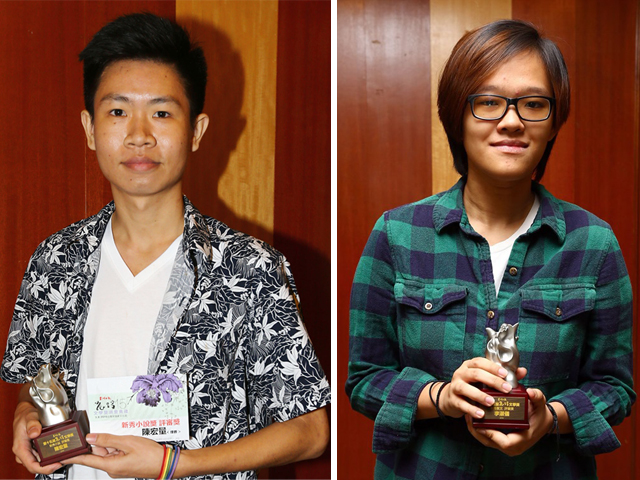
Chin (left) and Lee
UTAR Chinese Studies student Chin Hoong Leong and alumna Lee Shu Yi won awards at the Sin Chew 15th Hua Zong Literature Newcomer Award Presentation Ceremony (第15届花踪文学奖新秀奖). The award ceremony was held at Sin Chew Daily Headquarters, Petaling Jaya on 4 August 2019.
Chin’s winning entry titled “Bury” (埋葬) earned him the Judge Award in the Novel category (新秀小说组), while Lee’s winning entry titled “Cigarette” (烟) earned her the Judge Award in the Prose category (新秀散文奖). Both of them took home a trophy and cash prize of RM1,500.
According to Chin, “Bury” was his first novel and winning an award for it had special significance for him. He said, “Apart from the fictional part, the novel also included autobiography colours which reflected the scenes of the story and the narrator’s dream was actually my dream.”
He added, “I still remember that sleepless night. A lot of thoughts were running in my mind until I decided to write it out as a novel. I wrote the novel from a third-person perspective, describing the protagonist (a little boy) of his behaviour, thoughts and loneliness. During the writing process, I repeatedly jumped in and out of the character to complete this novel. The novel is more like a confession.”
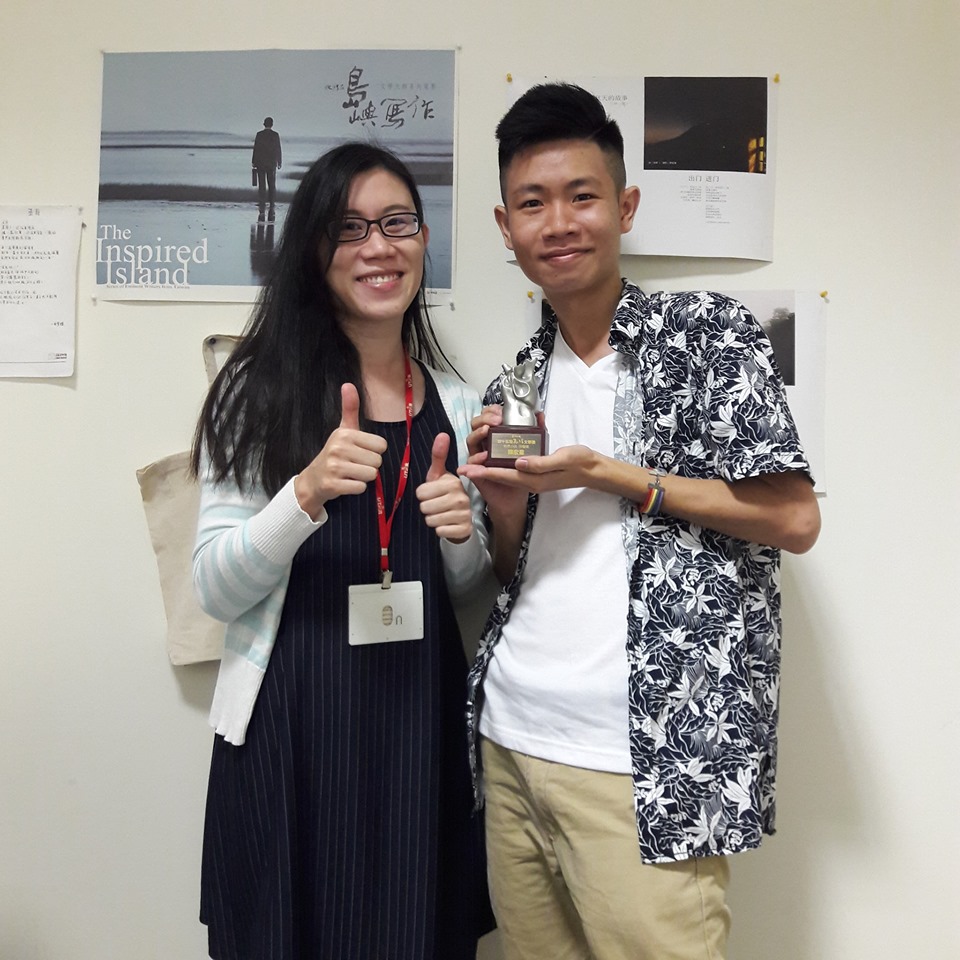
Chin thanking Dr Wong (left) for her encouragement, guidance, support and advice
He thanked his parents for their love and support, as well as the encouragement and guidance given by Dr Wong Lih Lih and Dr Lee Soo Chee from the Institute of Chinese Studies (ICS) during his writing journey. “I used to talk and discuss with Dr Wong on literary writing. She gave me a lot of valuable advice and guidance,” he said. At the same time, he also thanked his best friend Li Tingxin, a young, passionate writer, who has previously won many awards, for inspiring him to embark on this literary journey.
He also said, “The Kampar Campus which is filled with beautiful scenery actually helped to stimulate my creativity because it had many hidden creative inspirations for me to discover. I did not have much time to write in the first two years of my studies due to heavy assignments. I was only inspired to write after seeing my best friend achieving so much in competitions. Despite the many access to literary works in the literature classes, I sometimes do not have enough time to read and appreciate the texts provided by our lecturers. It is a pity that most of us have deterred our literary writing due to inevitable causes.”
He encouraged his coursemates who are still working hard on their writing journey to continue to persist, and for juniors who are trying to write, he advised, “The most important thing is to not be afraid or shy to show your writing and be brave to consult and ask for advice from your lecturers or seniors. Of course, you also need to read more literary works and try to learn and imitate, and gradually you’ll be able to explore your own writing skills. Then, try to submit your works for publication and compete in competitions. It does not matter if you have lost or have been rejected; the most important thing is your love for literary writing. I hope my juniors will actively involve in literary writing to boost the Department of Chinese Studies’ literary creation atmosphere.”
“Literature is very beautiful and I believe in the appeal of literature. When we work hard to write, it will encourage more people to write,” he concluded.
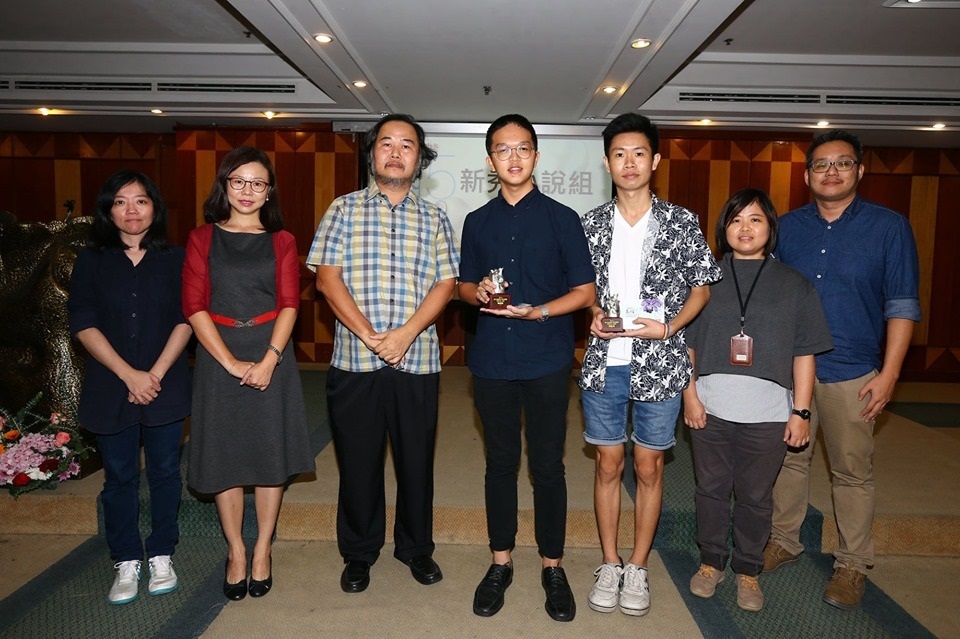
Chin (third from right) and other winners with the Judge Panel of Novel category
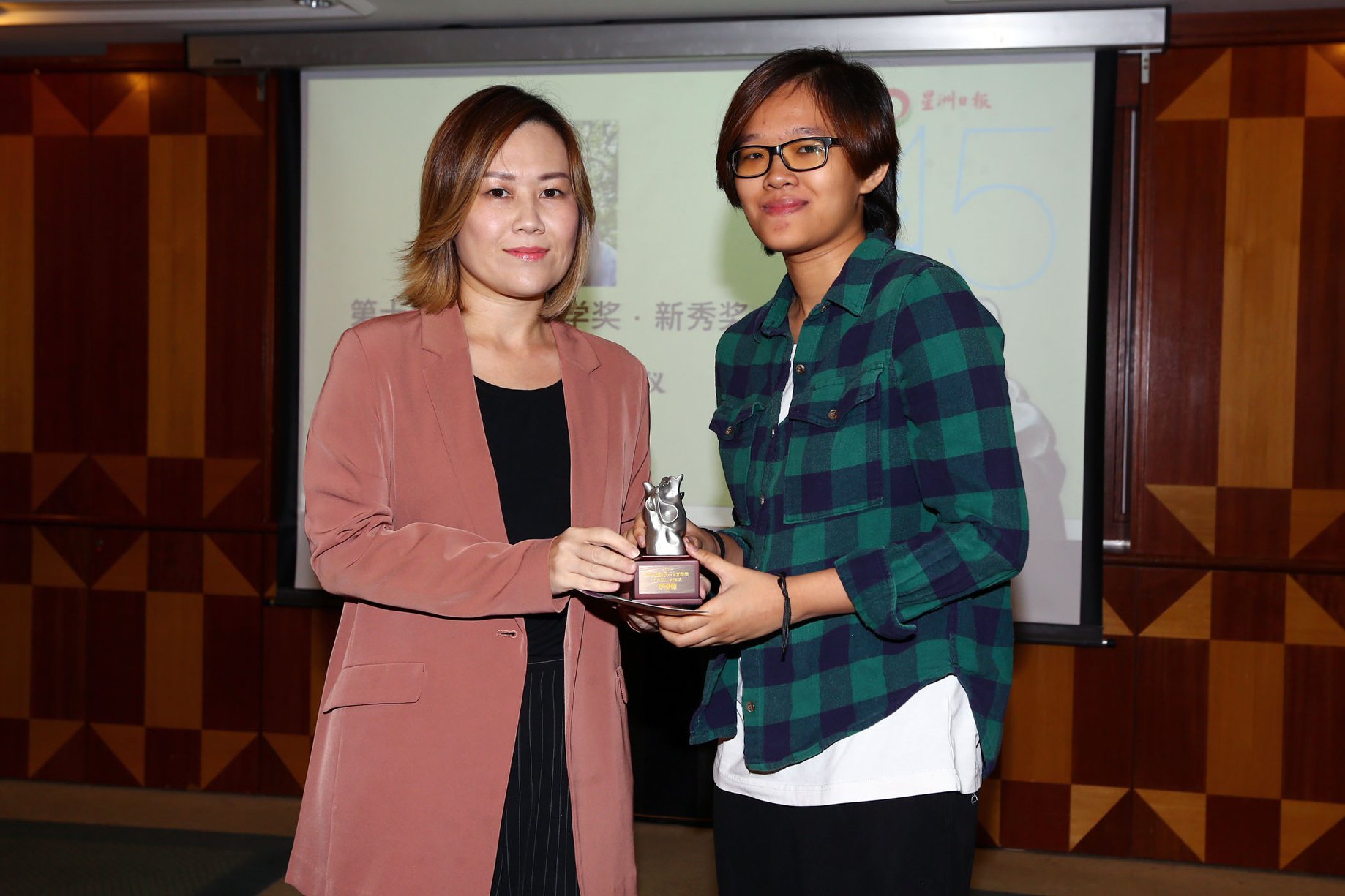
Lee (right) receiving Judge Award from the Panel Judge
Lee currently works as an assistant editor. She has previously won Judge Award for Prose category in the 19th National Intervarsity Chinese Literature Award during her studies.
According to Lee, “Cigarette” speaks about a conceptual shift from her childhood to adulthood. It features “smoking”, father-daughter relationship and a female smoker, one often considered a taboo in the eyes of society.
She said, “This prose was written end of last year when I was alone at the hostel. That was my first try and also my last chance to qualify for the competition. It was a ‘full stop’ for my university life. When I came back to this prose after more than half a year, I realised that it was just an impulse to write in the beginning. I felt like I’ve explored too much and written too heavily, but what I have written was something I had to face and sort out at that period. For me, reconciliation with myself through writing is the most important element in writing.
Regarding the impact of university life on her writing, she said, “Studying away from home had a great impact on me. I could clearly see the changes in me in terms of restructuring my values, worldviews and many more over the past three years. It feels like I know myself better now. The theory and knowledge I learned in the classroom helped me a lot and enabled me to know and understand what a good literary work contains. It also enabled me to review my own writing from the perspective of an author. ”
To the juniors, she advised, “To read more, think more and write more, pay attention to what happens around you. Also, learn to live better; these are the secrets to write better.”
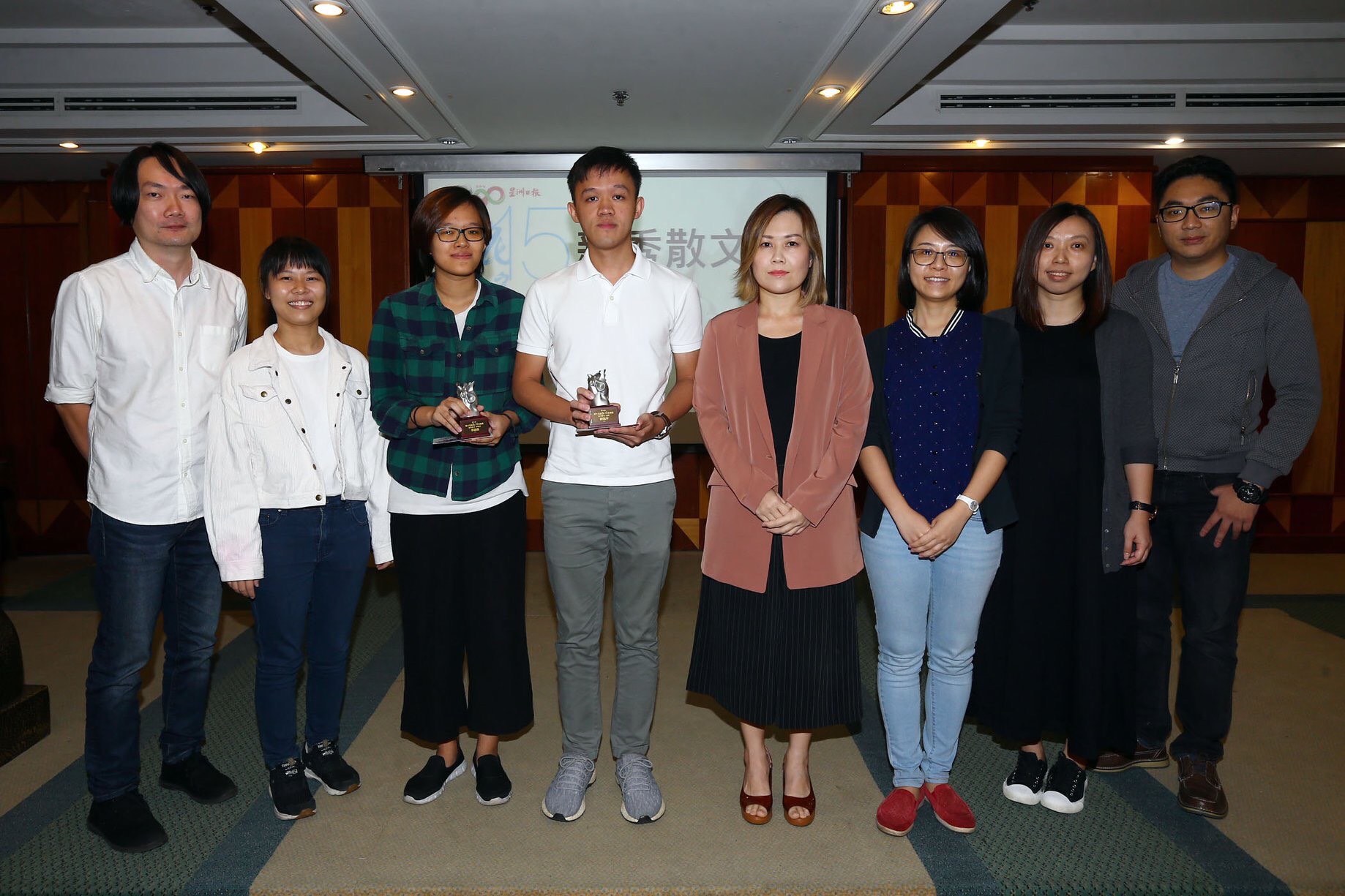
Lee (third from left) and other winners with the Judge Panel of Novel category
The biennial Sin Chew Hua Zong Literature Award is a highly-acclaimed literary award and it is widely recognised by the Chinese communities around the world. The Award has been playing an important role in spurring the development of Malaysian Chinese Literature and encouraging the discovery of new writers. The Award has also nurtured and inspired a number of prominent Malaysian Chinese writers who have made a mark in the literary world.
© 2019 UNIVERSITI TUNKU ABDUL RAHMAN DU012(A).
Wholly owned by UTAR Education Foundation Co. No. 578227-M LEGAL STATEMENT TERM OF USAGE PRIVACY NOTICE